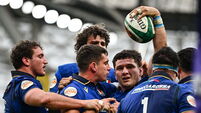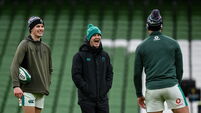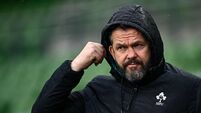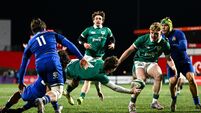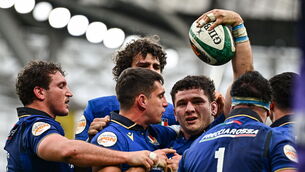James Lowe part of high-stakes game in battle for the skies
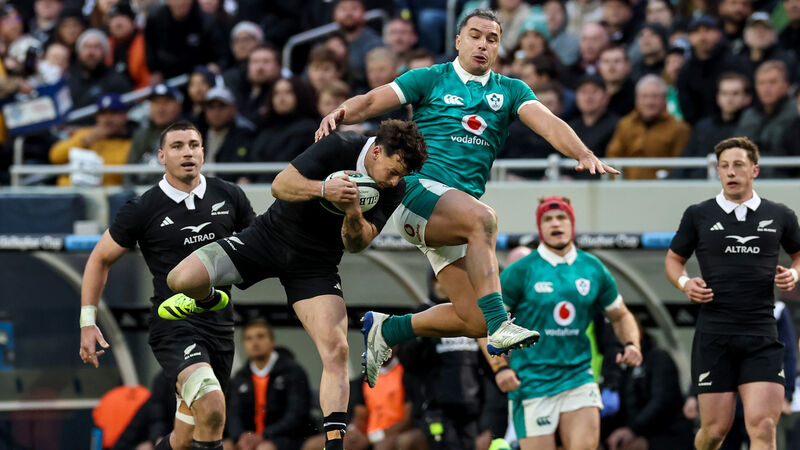
The outlawing of escort runners has changed the aerial game in rugby, making those battles "incredibly tougher" according to James Lowe. Pic: ©INPHO/Gary Carr
James Lowe wasn’t long in the door and after putting the kids down for a nap when Troy Parrott went and mainlined a shot of delirium into the veins of an entire country in Budapest last Sunday afternoon.
Lowe is a Manchester City fan, he likes his football, but a part of his rugby brain must have been impressed by the prodigious heights that Liam Scales reached before heading the ball on for the AZ Alkmaar striker to scrape home that winner with his studs.




